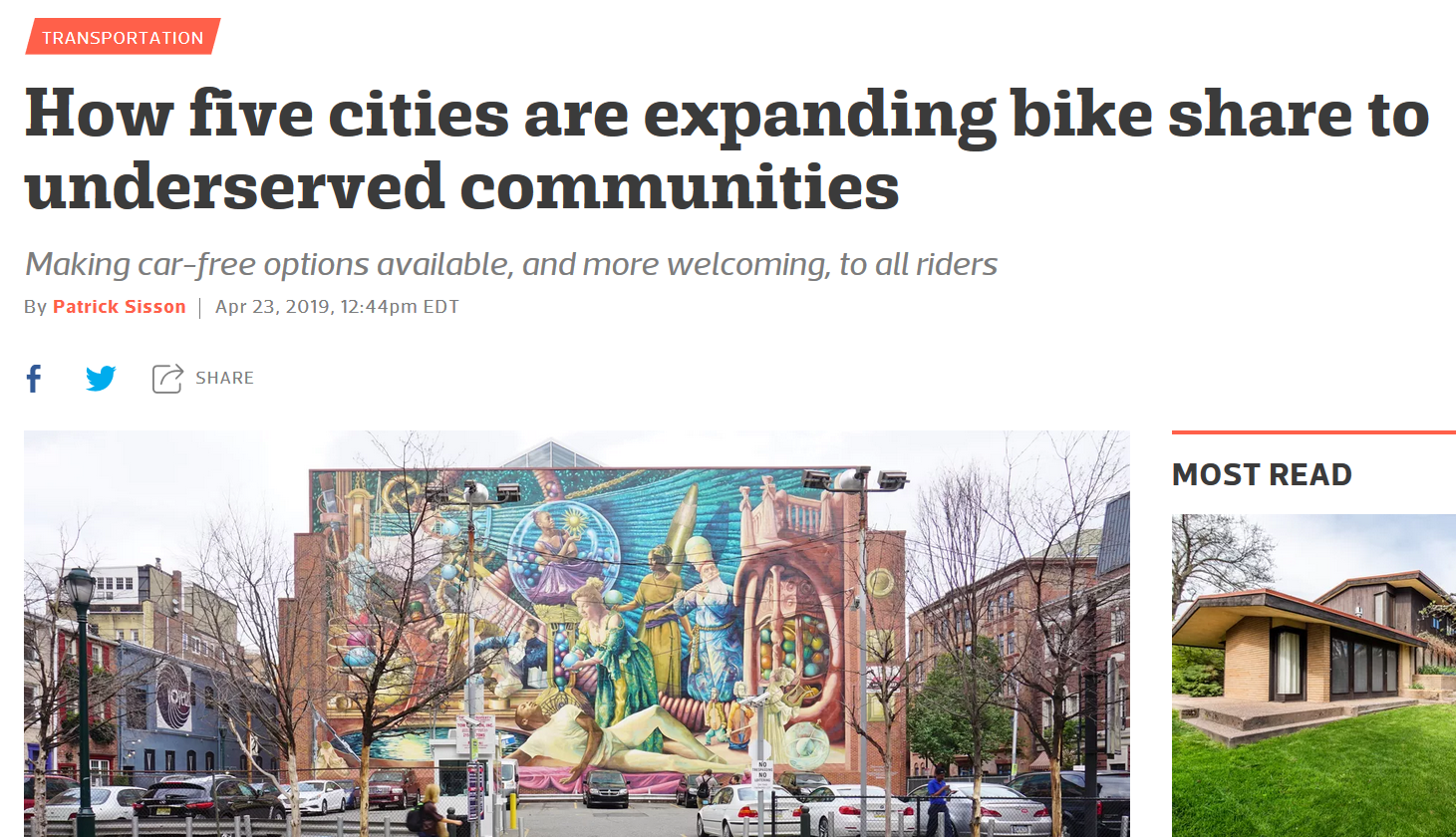Traditional bike share still leads on equity
by Stefani Cox
April 30, 2019
As seen in NACTO’s 2018 snapshot for shared micromobility, dockless bike and scooter systems have jumped in size and popularity. But that doesn’t mean efforts from previous iterations of bike share are obsolete, especially when it comes to equity and community partnership.

Curbed recently highlighted five cities that have consistently worked to ensure that bike share reaches a diverse set of riders:
- Boston’s Bluebikes has dramatically expanded its number of stations and aims to reach accessibility for 85% of residents.
- Ithaca nonprofit Bike Walk Tompkins works to get seniors comfortable riding by experimenting with adaptive cycles.
- The Bicycle Coalition of Greater Philadelphia provides bilingual programming to increase the effectiveness of messaging and outreach.
- Detroit’s MoGo conducted a formal pilot program for adaptive cycles, in partnership with a local bike shop.
- Memphis’ Explore Bike Share functions through a nonprofit model, with an ambassador program and several community events.
The list, which doesn’t include efforts happening numerous other cities, goes to show that investment in local partnerships matters now more than ever. As the shared mobility space continues to evolve, it’s important to take best practices in outreach, engagement, and accessibility into the new conversations.
The Better Bike Share Partnership is funded by The JPB Foundation as a collaborative between the City of Philadelphia, the Bicycle Coalition of Greater Philadelphia, the National Association of City Transportation Officials (NACTO) and the PeopleForBikes Foundation to build equitable and replicable bike share systems. Follow us on Facebook, Twitter and Instagram or sign up for our weekly newsletter. Story tip? Write stefani@betterbikeshare.org.
